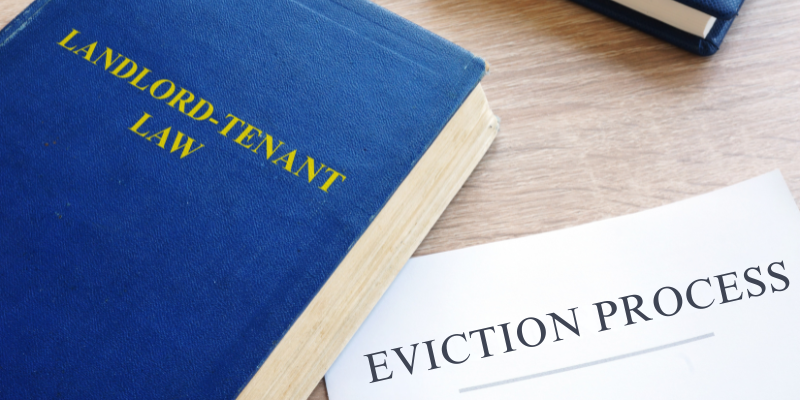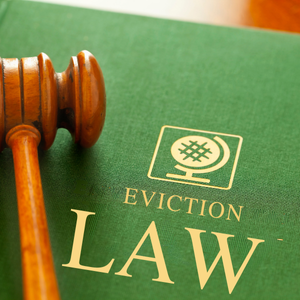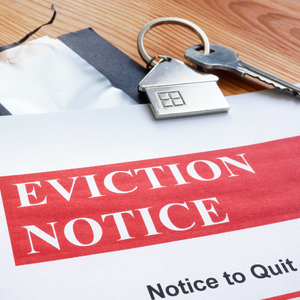
For tenants and landlords, understanding the 2025 Washington eviction process, especially Seattle’s just cause laws, is crucial. This concise guide explains the steps, timelines, and legal nuances of eviction proceedings. Discover Seattle, WA’s eviction process length, tenant protections, landlord responsibilities, and changing laws. This guide covers Seattle’s eviction process for tenants and landlords.
Brief Overview
Tenants and landlords will benefit from Washington’s 2025 eviction guide, which provides a detailed explanation of Seattle’s just cause laws. It describes eviction steps and timelines, including recent legislative changes that affect housing rights and responsibilities. To avoid disputes, parties should communicate well, be transparent, and understand their roles. Eviction duration depends on several factors, so legal procedures must be followed for efficiency. Navigating Seattle’s complex housing market requires staying current on regulations.
Key Highlights
- Recent Washington laws enforce stricter timelines for eviction, emphasizing expedited resolutions and tenant protections.
- Seattle’s eviction process complexity requires understanding legal steps and adherence to just cause laws.
- Landlords must issue precise eviction notices and follow meticulous documentation to avoid delays.
- Effective tenant-landlord communication prevents disputes and enhances relationship harmony.
- Eviction duration in Seattle varies; court scheduling and tenant responses significantly impact timelines.
Understanding Washington Evictions
Due to complex laws and regulations, Washington evictions can be difficult for landlords and tenants. Washington evictions require an eviction notice and compliance with state laws. Understanding the eviction timeline is crucial because mishandling can delay proceedings. This guide clarifies eviction timelines, tenant and landlord responsibilities, and court processes. Understanding these factors helps both parties navigate housing laws and reduce eviction stress.
Steps in the Eviction Timeline
Step 1: Landlord Issues an Eviction Notice
- Nonpayment of rent: 3 days to pay or leave.
- Lease violations: Tenant has 10 days to fix.
Step 2: Unlawful Detainer Action
- The landlord files a court eviction lawsuit if unresolved.
Step 3: Tenant Response
- The tenant responds formally to protect their rights.
- Every claim and defense is recorded for the court.
Step 4: Court Review and Hearing
- The judge reviews both parties’ notice, lease terms, and evidence.
- Assess notice validity and tenant behavior.
Step 5: Writ of Restitution
- If the landlord wins, the court issues a writ of restitution, allowing legal eviction.
Step 6: Compliance and Legal Guidance
- Proper adherence to each step prevents delays and legal issues.
- Landlords and tenants should consult legal or housing resources for guidance.
Evaluating Eviction Laws in Washington

Washington eviction laws change, especially with new regulations. Evaluating state eviction laws requires understanding key legal changes and how they affect tenants and landlords. RCW updates on evictions have changed housing rights and responsibilities in Washington. These laws protect tenant rights and ensure fair landlord practices. As eviction laws become more complicated, property owners and renters must stay informed to comply with and honor leases.
Recent Updates and Implications for 2025
Important eviction law updates in 2025 change how landlords and tenants navigate the rental market in Washington. The Revised Code of Washington (RCW) tightens notice requirements and speeds up court procedures to streamline Seattle evictions and reduce disputes. These changes show the state’s desire to balance tenant and property rights.
Washington has prioritized tenant rights through just cause eviction. Landlords must now provide valid reasons for eviction, such as nonpayment or lease violations. Reduced arbitrary evictions provide tenants with greater housing stability and the right to challenge unfair practices. These laws give renters valuable security during economic shifts and rising housing costs.
Washington eviction laws in 2025 require landlords to follow documentation, notice, and legal procedures. Clear records and communication prevent costly delays and dismissed cases. Courts must reduce backlogs, ensure efficiency, and promote fairness in eviction hearings. These updates structure the process to protect tenant rights and landlord interests.
Exploration of Updated Eviction Laws
- Tenants should document all communications with landlords to support their position in any eviction disputes.
- Landlords must familiarize themselves with the Revised Code of Washington to ensure compliance with all legal requirements.
- Legal professionals should provide updated training sessions to educate landlords and tenants on recent eviction law changes.
- Courts will streamline processes by adopting digital documentation to manage case volumes effectively.
- Both tenants and landlords should seek advice from specialized legal counsel to protect their respective interests.
- Housing advocates can work on community outreach programs to raise awareness of tenant protections and rights.
- Policymakers need to periodically review the impacts of these laws to ensure continued fairness and efficiency.
Overall, staying informed and proactive is essential for all parties navigating Washington’s evolving eviction landscape.
The Role of Tenant and Landlord Communication

Management of the rental relationship and preventing eviction depend on tenant-landlord communication. Communicating with each other can resolve many common issues, like late rent payments and rent deadline misunderstandings, before they lead to eviction notices. Improved communication can reduce disputes and help landlords and tenants understand their roles. This section offers tips for smoother interactions.
Best Practices for Preventing Disputes
Disputes can be avoided if landlords and tenants encourage and practice open communication. Tenants need to inform landlords as soon as possible if issues arise that could impact rent payment or the condition of the rented property. In the same way, landlords must define the various terms of the lease, the payment structure and schedule, and the property rules. To help reinforce understanding, landlords can provide tenants with copies of the lease and regulations and rent reminder notifications.
Landlords must document all communications with tenants. This practice will help manage relationships and potentially protect the landlord’s interests should the matter require an eviction. Equitable documentation reduces ambiguity in court by demonstrating that the relevant parties have met all statutory obligations.
To help improve the rental environment, landlords and tenants should work collaboratively to develop dispute resolution strategies. Court-mandated resolutions can often lead to strained relationships and costly evictions. Direct and open communication is an excellent way to build trust, improve mental well-being, and reduce stress levels.
| Communication Best Practices | Benefits of Effective Communication | Legal and Documentation Strategies |
|---|---|---|
| Regular Check-ins | Prevents Disputes | Maintain Written Records |
| Clear and Transparent Messaging | Fosters Trust | Ensure Lease Compliance |
| Address Issues Promptly | Enhances Tenant Satisfaction | Keep Communication Logs |
| Mutual Respect and Courtesy | Encourages Long-term Tenancy | Document Maintenance Requests |
This table underscores the essential role of communication in preemptively addressing tenant-landlord disputes and fostering a cooperative rental environment.
How Long Does the Eviction Process Take in Seattle, WA?

In Seattle, WA, how long an eviction procedure takes can span from three weeks to several months, depending on multiple situations. The time it takes for an eviction depends on the laws of Washington, how the court runs, and the response of the tenant. The timing of the eviction is based on the notice, the tenant’s actions, and the court’s schedule. Due to the complicated nature of the law, it is advisable for the landlord and the tenant to understand all the components from the notice to the actual eviction.
Factors Influencing the Duration
Several factors affect Seattle eviction timelines. The type of eviction notice comes first. Tenants receive a three-day notice for nonpayment. Some lease violations allow 10 days. If the tenant still doesn’t comply, the landlord can take them to court, but scheduling and backlogs can delay proceedings.
The tenant’s response time will also be affected by a lawsuit. Tenants have a certain number of days to respond, and improper notices can lead to disputes and hearings. A party’s mistake can dismiss the case and restart the process, adding time. Thus, both parties in an eviction case must follow Washington housing laws.
Tenant counterclaims, extensions, and court-ordered mediation can delay. Certain evictions can be completed in 3 weeks, but probable cause can significantly extend the time. This is why legal advice is crucial.
Understanding Seattle’s just cause laws and procedural timelines is essential for evictions. Knowing tenant rights and landlord obligations helps avoid conflicts. To protect their interests and maintain fair rental conditions as housing laws change, both parties should consult local resources and legal aid.
FAQs
Could you please explain the eviction process in Seattle, WA, 2025?
Starts with an eviction notice. If unresolved, landlords can sue. The court may order an eviction after both parties present their case.
The Seattle eviction process takes how long?
Three weeks to months, depending on court scheduling and tenant responses.
How do Seattle’s just cause laws protect tenants?
Lease violations or non-payment must be justified by landlords. Evictions without cause are illegal.
What are the most important 2025 Washington eviction law changes?
Tighter timelines, tenant protections, and landlord documentation.
How can communication prevent disputes?
Open and timely communication helps resolve rent or maintenance issues before eviction.
Do you need to sell your home fast? Avoid costly repairs and a lengthy process. Kind House Buyers is a trusted cash-for-houses company in Washington that handles everything, from fair cash offers to closing details. Whether you want to sell your Seattle house faster or simply need a hassle-free sale, we make it seamless. Contact us at (253) 216-2497 today for a no-obligation offer and get started now!
Helpful Seattle Blog Articles
- Seattle, WA, Neighborhood Map
- The Best Free Things to Do in Seattle, WA
- Can I Use a Title Company to Sell My House in Seattle, WA
- How to Sell an Investment Property in Seattle, WA
- How Long Does an Eviction Process Take in Seattle, WA
- Selling a Home That Needs Repairs in Seattle, WA
- What to Do If You Inherit a Distressed Home in Seattle, WA?
- Can I Rent Out My House During Divorce in Seattle, WA?
- Average Cost to Sell a House in Seattle, WA
- How Long After an Appraisal Can You Close in Seattle, WA
- How to Stage a House for Sale in Seattle, WA
- Selling an Old House in Seattle, WA
- Selling Parents’ House Before Death in Seattle, WA
- Selling Your Home in a Seller’s Market in Seattle, WA

